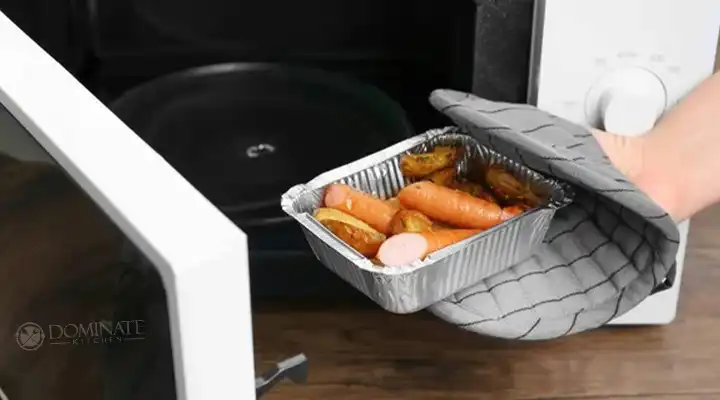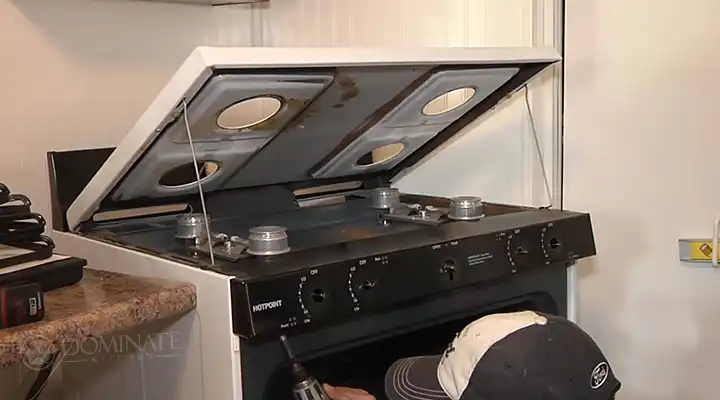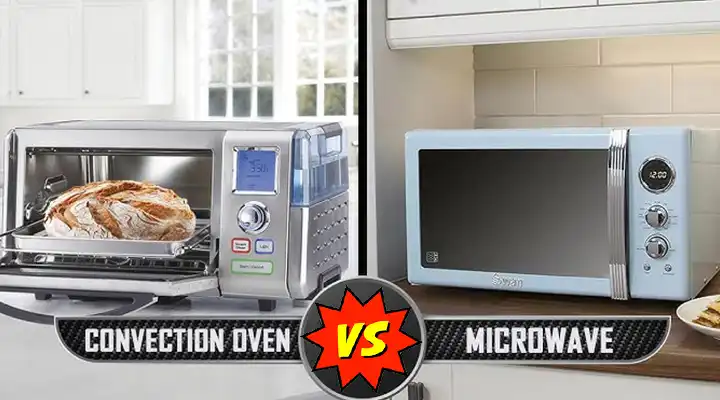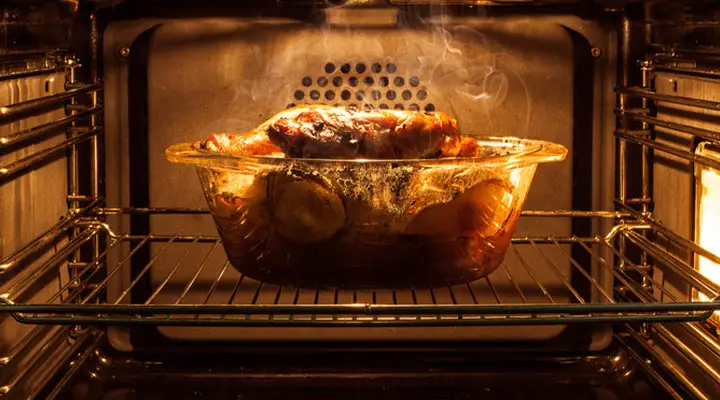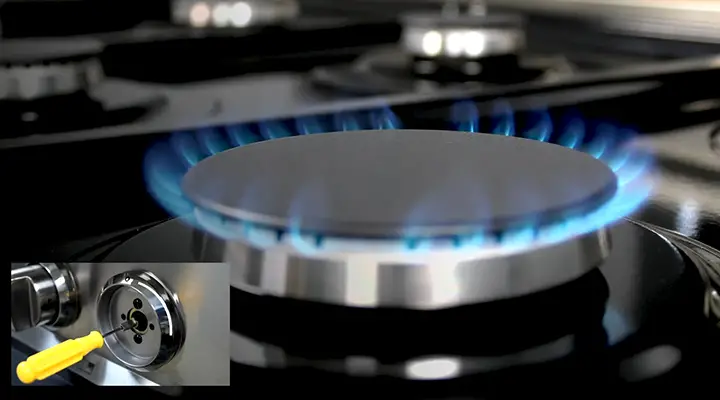Why Is My Oven Taking So Long To Preheat | Know the Reasons?
It’s downright frustrating to walk into the kitchen to start cooking dinner, only to discover that your oven is still cold or not even turned on. The situation becomes more frustrating when you cannot figure out the reason and think endlessly- why is my oven taking so long to preheat?
Possible reasons for a slow oven preheat faulty heating element, thermostat issues, or poor insulation.
The good news is that it’s usually an easy fix, but you do need to be sure that you take a few moments to identify why your oven is taking so long to preheat. In this article, we’ll cover some common causes of slow-heating ovens.
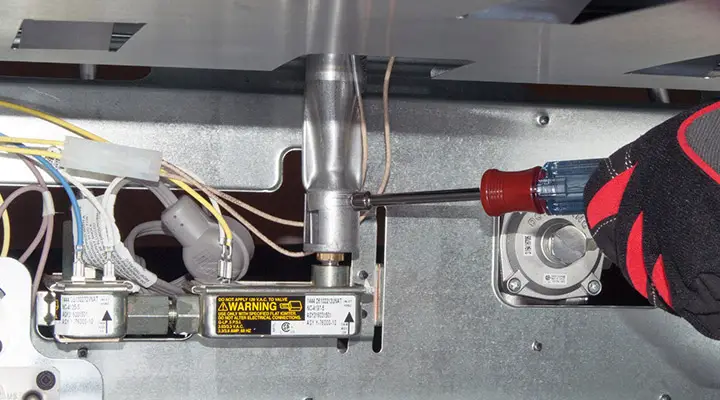
Causes of Oven Taking So Long To Preheat?
Do you find your oven taking an eternity to preheat? It can be quite frustrating but fear not, there are several reasons behind this sluggish preheating process. In this step-by-step guide, we’ll explore possible causes and solutions to get your oven ready for cooking in no time.
Step 1: Check the Light Bulb Wattage
Causes: Your oven may have a lower-wattage light bulb than what you have now.
Solution: Upgrade to a higher-wattage light bulb. This change will speed up the preheating time by providing more heat during the process.
Step 2: Ensure Proper Airflow
Causes: Obstructions in the airflow, such as old racks or a blocked door, can impede the oven’s heating process.
Solution: Remove any obstacles that obstruct the airflow in your oven. This will allow it to preheat more efficiently.
Step 3: Clean Grease Build-Up
Causes: Grease build-up on oven walls or the door can slow down the preheating process of your oven.
Solution: Thoroughly clean any accumulated grease. A clean oven heats up faster and more evenly.
Step 4: Check the Temperature Sensor
Causes: A malfunctioning temperature sensor can cause delays in preheating as the oven waits for the correct temperature.
Solution: Test or replace the temperature sensor if necessary. Proper sensor functionality ensures timely preheating.
Step 5: Inspect the Heating Element
Causes: A faulty heating element can lead to slow preheating.
Solution: If your heating element is not working, replace it. The time taken will depend on your location and your oven’s warranty coverage.
Step 6: Examine the Thermostat
Causes: A malfunctioning thermostat can slow down the preheating process.
Solution: If the thermostat is the culprit, replace it. The duration of this task may also depend on your location and warranty coverage.
Step 7: Check the Temperature Control Knob
Causes: A broken or stuck temperature control knob can cause your oven to turn on and off repeatedly.
Solution: Adjust the control knob to ensure it’s functioning correctly. This can help prevent erratic preheating cycles.
Step 8: Verify the Power Supply
Causes: Sometimes, issues with the power supply to your home can affect the oven’s performance.
Solution: If you suspect a problem with your home’s power supply, consult an electrician for a thorough inspection. They can address any power-related issues that might be causing slow preheating.
By following these steps, you’ll have a better understanding of why your oven is taking longer than usual to preheat and how to address the issue effectively. A well-preheated oven will ensure your dishes are cooked to perfection without unnecessary delays.
Why Does a Gas Stove Take Long To Preheat?
There are many reasons for taking longer to preheat a gas stove. The most common one is the size of the burner. If you have a large burner, it will take longer to preheat. The larger burner has more elements in the system, which takes more time to heat up and reach its temperature level. When your oven has too many elements, it needs more electricity and fuel than smaller ones that can only cover 2 or 3 elements.
Another reason can be that the gas pressure is low or you have a defective pilot light. To solve this problem, you need to check your gas pressure and check whether there is any problem with your pilot light. Follow the steps to find out further reasons:
Step 1: Check the gas valve. If it is not turned off, turn it off and then check whether there is any problem with it.
Step 2: Check whether the pilot light is lit or not. If it is not, turn it on and wait for a few minutes before turning it off again. The pilot light will be lit when you start using your gas stove.
Step 3: Check whether there is any blockage in the burners or if they are dirty. In either case, clean them thoroughly with a dry cloth or brush before turning them on again.
This is quite a simple feature to use. Place the pan or plate in the oven and close the door. The food will be heated quickly and evenly without waiting for it to heat up slowly through convection or radiant heat. The rapid preheat feature will automatically set the clock and temperature of your oven to the correct settings for your recipe. In such a condition, the oven’s interior heats up at a faster rate than normal.
What Is Rapid Preheat Feature On Preheating Oven?
Rapid preheat is a feature that allows you to preheat your oven faster than traditional methods. This can be especially useful if you need to cook multiple dishes at once and want to turn on the stove when the food is ready. The rapid pre-heat feature in the oven can automatically set the clock and temperature of the range. So, it’s easy to preheat your oven using this feature and start baking immediately.
Frequently Asked Questions
How Long Should It Take For An Oven To Preheat?
The time it takes for an oven to preheat depends on how hot the oven is and how much space there is between the oven door and the surrounding walls. If there is enough room, it can take up to 20 minutes. When there isn’t enough room, it’ll take longer. Also, ovens that are not very hot take even longer than those that are very hot. The hotter your oven gets, the more energy it uses and the faster it will heat up.
Why Does It Take So Long For My Electric Oven To preheat?
There are a few reasons why this can happen. One possibility is that the heating elements in the oven are getting old and need to be replaced. Another possibility is that something is blocking the heat from getting to the food, like a dirty oven door or an obstruction in the ventilation system. Besides, check the power supply to identify any wiring issues.
How Can I Make My Oven Preheat faster?
If you’re in a hurry to get your oven preheated, you can use some tricks to speed up the process:
- First, check the oven manual to see if there is a ‘fast preheat’ setting. This setting can shorten the preheating time by up to 50%.
- Second, check the manufacturer’s recommendations and make sure you’re using the correct settings.
- In case your oven has a convection setting, use it. It will help the heat circulate better and speed up the process.
- Lastly, try preheating with the door open for a minute or two. This will let some of the heat out and make the oven warm up faster.
What Do I Do When My Oven Takes Too Long To Heat Up?
When your oven is taking too long to heat up, you can try some solutions and fix the issue.
- Check the oven’s thermostat to make sure it is accurate. If it is off by even a few degrees, it can affect how long it takes for the oven to heat up.
- Clean the oven’s heating elements to ensure they are not covered in grease or other debris that can slow down the heating process.
- Make sure that the oven is properly plugged in and the circuit breaker hasn’t been tripped.
- Take a look at the oven temperature setting to make sure it is set correctly. If it is set too low, it will take longer for the oven to reach the desired temperature.
The Takeaway
To conclude, the aforementioned points are the actual reasons why your oven is taking so long to heat up. We hope that this list has been helpful. Actually, preheating an empty oven is like heating an empty cavity without fuel for the fire. As a result, it will take longer to reach the temperature at which it begins to burn. You should only worry when the oven behaves differently than usual.

